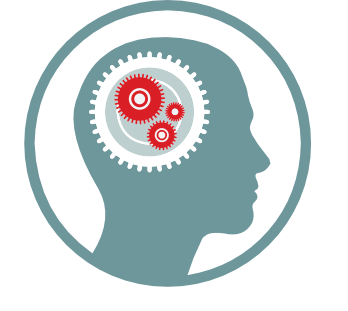Components for your training journey: are you the one?
The page above this one contains more information on the general process (Journey). This page contains details of the training-options. To meet the general desire of decision makers to make simple choices I will get as concrete as possible below. But again be aware that this is not about following a few training sessions, it is the spark to get you into a mode of lifelong learning.
For completeness sake I show the three main categories for the services from which to choose the parts of your actual Journey are: Category 1 Get Inspired (training option 1), Category 2 Get started (training options 2, 3) , Category 3 Get Better (training options 4, 5),. With a Special option for Education (training option 6).
PLEASE NOTE THAT DUE TO LIMITED AVAILABILITY IN THE FORESEEABLE NEAR FUTURE I CAN IN ALL LIKELIHOOD ONLY TAKE ON SMALLER ASSIGNMENTS, MORE LIKELY IN CATEGORIES 1, 1b, 2 and 3 . IT ALL DEPENDS ON THE INTENSITY AND LENGTH OF WHAT IS ASKED FOR, HOW INTERESTING YOUR CHALLENGE IS AND WHETHER YOU ARE THE ONE THAT I LOVE TO WORK WITH?
Typically, these activities are the start of a purposefully designed process to get curiosity, together with critical thinking and creativity, (back) in your DNA. Note:
This changes how you work, not who you are!
1. Innovation and Curiosity 101 / Asking questions
Presentation, workshop, master class etc on applied curiosity and/or dealing with complexity. Ideally the audience has an active role, before, during and/or after..One workshop does not change the DNA, but it can be a practical first step to trigger a more thorough process.
It is strongly recommended to combine this introduction with a workshop on Asking Questions. Without good, better, more creative questions any answer has limited value. And the process to get to good questions is valuable in itself.
Expected result: Awareness about the power of Thinking Differently, and testing readiness of your team to Get Serious about Curiosity. Start with formulating different questions.
Duration: 1-2 hours for introduction, 2-4 if combined with the Question-workshop
1b. A Curious Coffee
As alternative the Asking Questions workshop can be tweaked: we can take one of your practical problem-situations and I can actively drill you with questions to demonstrate how that can open up new avenues for thought. Ideally this is a warm-up for getting better at this yourself (see #2 below this one).
Expected result: explicit insight in underlying drivers for your problem/ situation and preferably inspiration to get proficient in creating such insights yourself.
Duration: 1-2 hours
2. Bounce Around, with a mission
Bounce off your specific problem or idea. You will likely surprise yourself by the curious questions that we formulate together so you can proceed in a better direction. I can share my own creative thoughts as well, but the main idea is that YOU get more curious.
Expected result Eye-openers with regards to the real problem, new directions to consider, the power that asking (different) questions plays in this, and clues for new ideas (bonus)
Duration: 2-8 hours
3. Thinking of Miles – Jazz improv inspired brainstorming
Traditional brainstorming has many pitfalls. Amongst others the notion of “free association” is the cause of this. Unfortunately, people on average are as good in free associating as elephants are in knitting. Working with energisers and lots of post-its does not necessarily change that.
So here we take a different approach and apply jazz improv principles: work with a diversity of ‘instruments’ to compose an unplanned piece of music that takes us, you, in unexpected directions.
Expected result: newly created angles for your challenge at hand, and idea directions while having fun and feeling energised. Lasting effect would be to use this type of sessions more often.
Duration: 4 hours (with variations)
4. How to embrace Complexity – “in a Box”
Do you feel overwhelmed by complex challenges flying in your face? Feel the urge to simplify and get back control? But wait! There’s another way. Learn how to accept, embrace and work with complexity, and dance with uncertainty.
- You face a complex problem and feel tempted to make it as small as possible. However, so far that response has not helped you either, or you have a hunch it won;t work.
- That’s probably correct: properly dealing with complexity is not based on simplification.
- I can offer different options. The basic version covers 3 sessions, with homework for your team in between: Clarify the Problem, Create a shared design space, Towards an adaptive future
- An active attitude by your team is necessary. Depending on needs my role can vary
Expected result: get an integral understanding how you can address your complex challenge, in an adaptive way, i.e., create an “architecture” that respects diversity, still built on a core strategy.
Duration: 3 times 2-3 hours, with homework in between. Preferably within one month.
5. ABC as core skill development
- Develop curiosity,as prerequisite for creativity and innovation, as core skill in your team
- Also, or especially, if it is not the “innovation” or “creative” department
- Why? Because you recognise that this is a key skill to stay relevant or even survive, and justifies a fitting investment in time and effort..
Expected result: Not a standard outcome, the result is highly dependent on your needs and willingness to go deep and long
Duration: Tailor made, count on 2-6 months, several hours per week, on average
6. ABC in Education: Stop the Waste
Improving the situation of students who are only trained in reproducing known knowledge revolves around teachers (and school boards or faculty managers). So let’s talk about how we can equip and actively encourage you to better integrate the Triple-C – Critical thinking, Curiosity and Creativeness – in the learning culture.
There are many examples in practice of schools who dared to experiment with this, and thereby prepared their pupils much better for the real world.
So let’s talk about how we can achieve that in your school, course, curriculum. The most likely activities are centred around developing course modules and/or training for teachers how to include 21st century skills in educational programmes, with curiosity as red thread. Note that this includes the interplay with cognitive skills, not the replacement thereof.
Many educators think they train their pupils in such skills, but the reality is different, although not always articulated.
The general process as tailored to educational institutes can be downloaded here..
Expected result: the intended result is an educational institute or at least programme where skills like curiosity are explicitly encouraged in the curriculum by teachers who are equipped and enthusiastic to do so and supported by a conducive internal learning culture. To get an idea of the envisioned transition you can have a look here, bottom half of the page.
Duration: likely to take several months, at least 1 day a week. Lighter versions if the starting situation allows to make a flying start

